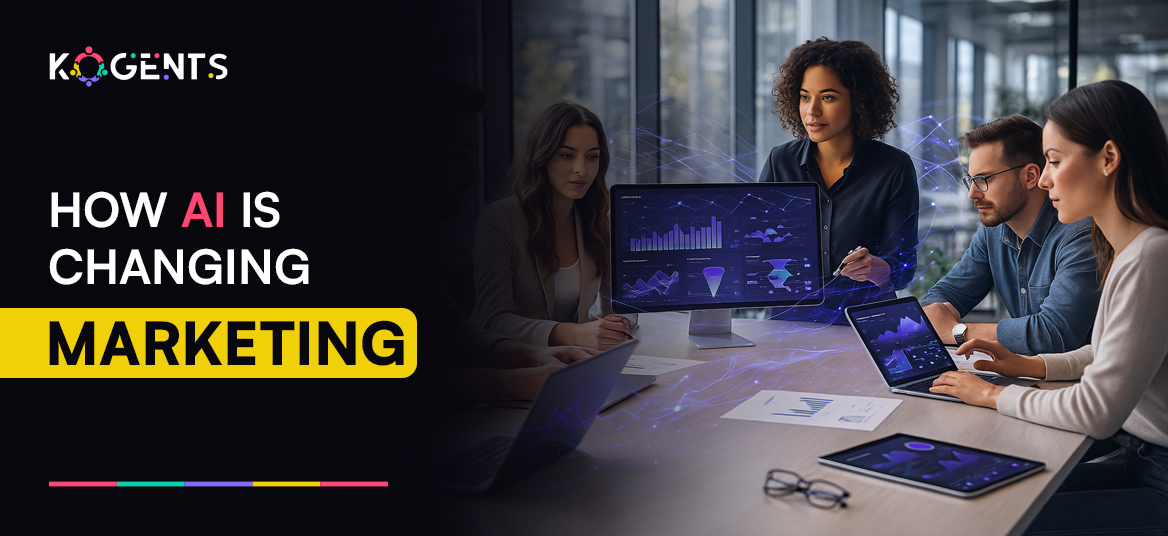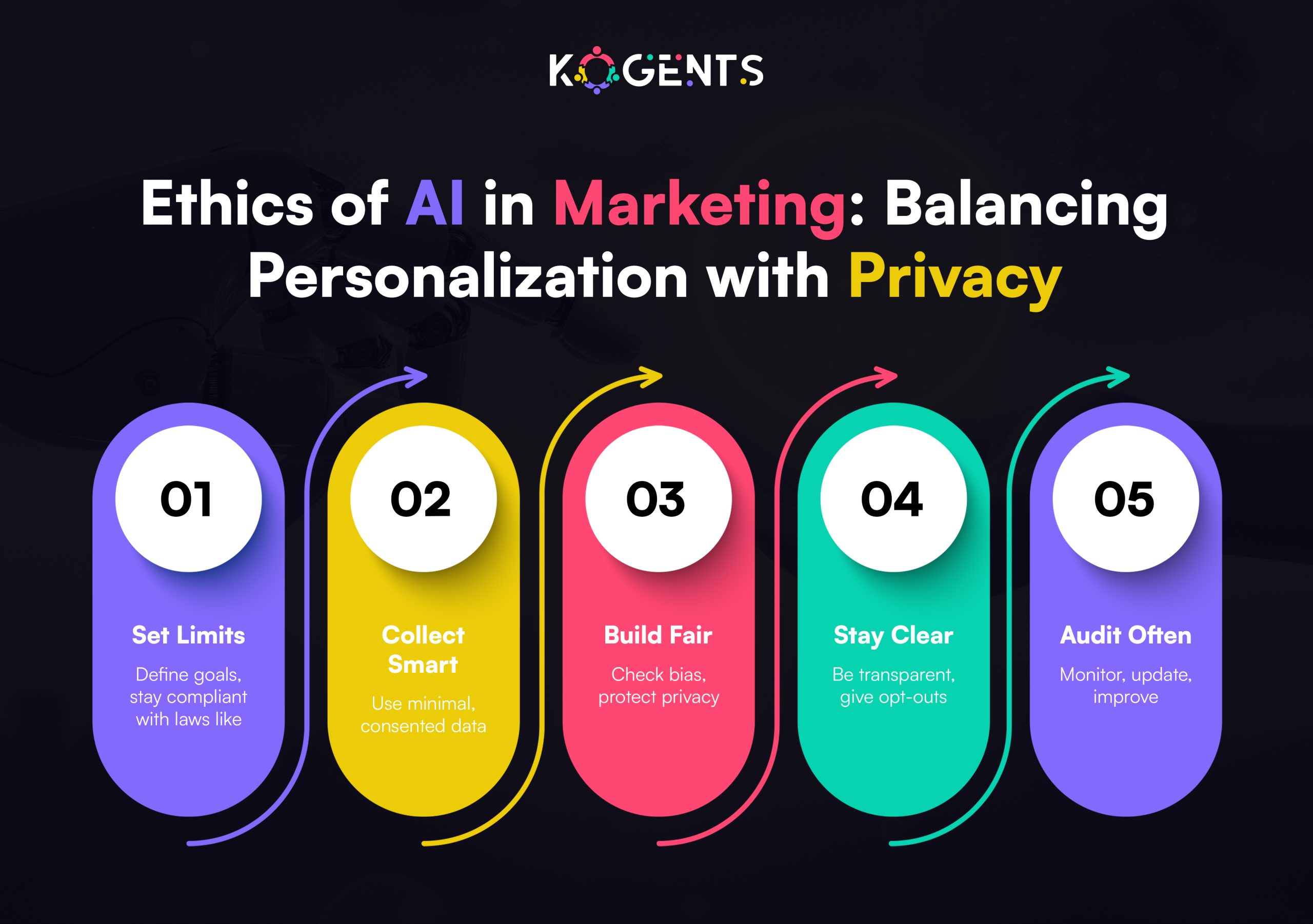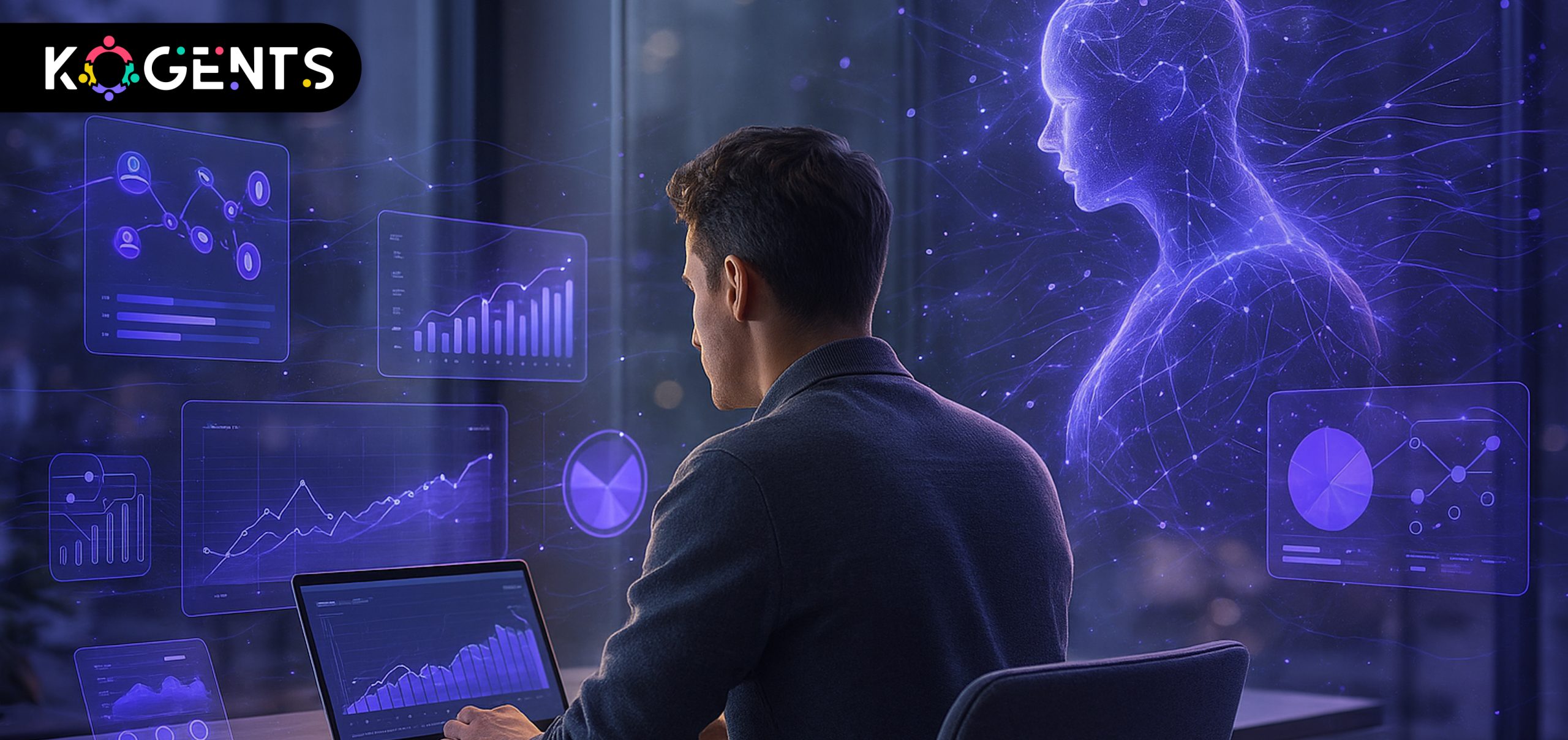How AI is changing Marketing

Summary:
Marketing has always been about connecting the right message with the right audience at the right time.
Yet in today’s hyper-digital economy, that alignment is harder than ever. Customers are bombarded with endless ads, messages, and offers.
Traditional strategies are no longer enough to cut through the noise.
This is where artificial intelligence (AI) is stepping in and reshaping the entire marketing landscape.
From AI-powered personalization engines to predictive analytics and programmatic advertising, businesses of every size are finding new ways to optimize their customer journey. Entrepreneurs, solopreneurs, and enterprises alike are turning to AI-driven marketing strategies to gain competitive edges once reserved for the big players.
In this blog, we’ll explore in depth how AI is changing marketing, why it matters for entrepreneurs and healthcare providers, the challenges, the benefits, and real-world case studies.
Whether you’re running a one-person online shop or leading a mid-size healthcare brand, this guide will show you why AI isn’t the future of marketing; it’s the present.
Key Takeaways
- AI is revolutionizing marketing by enabling personalization, predictive analytics, and automation.
- Entrepreneurs and solopreneurs benefit most by saving time, cutting costs, and gaining enterprise-level insights.
- Healthcare marketing is transformed through predictive campaigns, patient engagement, and compliance.
- The future of AI in marketing is secure, blending human creativity with machine intelligence.
Exploring AI Agents for Marketing
At its core, an AI agent in marketing is a software system that leverages artificial intelligence to analyze data, make decisions, and automate tasks that would typically require human intervention.
Think of it as your intelligent digital assistant that never sleeps, continuously learning from customer interactions to deliver smarter insights and actions.
Some examples include:
- Chatbots & Conversational AI that engage with customers 24/7.
- Recommendation engines that suggest products based on browsing history.
- Predictive analytics tools that forecast buying behaviors.
- Programmatic advertising systems that automatically optimize ad placements.
Know It: Unlike traditional marketing tools, AI agents adapt and learn. With each campaign, they process massive datasets, from customer demographics to real-time engagement signals.
Why Entrepreneurs & Solopreneurs Need AI Agents in Marketing?
For entrepreneurs and solopreneurs, the playing field has never been more competitive. Competing with established enterprises often feels like bringing a knife to a gunfight.
But AI levels the battlefield by giving smaller players access to enterprise-grade insights and automation.
Key Reasons They Need AI:
Time Efficiency:
Entrepreneurs often juggle multiple roles.
AI-powered marketing automation platforms take care of repetitive tasks like email campaigns, social media scheduling, and customer segmentation.
Cost Optimization:
Instead of hiring large marketing teams, solopreneurs can leverage AI-driven marketing tools that are both affordable and scalable.
Data-Driven Decisions:
With AI, even small businesses can analyze consumer insights at the scale of Fortune 500 companies.
Personalized Marketing at Scale:
AI and personalization in marketing allow solopreneurs to build strong, loyal relationships with their customers, without manually customizing every message.
Competitive Advantage:
By implementing AI-powered SEO, behavioral analytics, and customer journey optimization, entrepreneurs can target customers more effectively than competitors who still rely on guesswork.
Pro Tip: Start small with AI tools like HubSpot AI for inbound campaigns or chatbots for instant customer engagement. Gradually expand into predictive analytics and advanced personalization engines.
63% of retailers use AI agents for personalized marketing, inventory tracking, and customer support.
How AI is Revamping Marketing for Businesses, Healthcare, Educators & Learners?
AI is no longer a futuristic concept; it is actively revamping marketing across industries. While its impact on businesses and healthcare is already profound, the shift is equally significant in education and learning environments.
Businesses
For businesses, AI reshapes marketing by enabling customer journey optimization at scale. Companies now leverage:
- Predictive analytics to anticipate customer needs and trends.
- AI-driven personalization engines to deliver tailored content across email, websites, and social platforms.
- Programmatic advertising that automatically adjusts bids and placements in real time, ensuring every ad dollar generates maximum ROI.
- AI-powered SEO tools that analyze search intent and optimize content to align with consumer behavior.
Example: Retailers like Amazon use recommendation engines to drive over 30% of their sales by suggesting products based on browsing and purchase history.
Healthcare
Healthcare marketing has always been sensitive due to privacy and trust issues. AI is helping overcome these barriers:
- Patient engagement chatbots deliver accurate health guidance 24/7.
- Predictive outreach campaigns identify patients likely to miss appointments, reducing no-shows.
- Sentiment analysis helps providers understand patient concerns and improve trust-based communication.
- Data-driven personalization ensures HIPAA-compliant campaigns with secure patient targeting.
Example: Cleveland Clinic improved appointment adherence by 20% using predictive AI tools for follow-up communication.
Educators & Learners
Education is undergoing a marketing revolution powered by AI. Schools, universities, and online educators now compete for learner attention, making AI-driven marketing strategies critical:
Personalized learning journeys:
AI marketing platforms recommend courses, certifications, or learning modules based on student interests and prior engagement.
Automated student outreach:
Universities use chatbots to answer FAQs, manage admissions queries, and nurture leads into enrolled students.
Behavioral analytics:
Predicts dropout risks and sends tailored retention campaigns to at-risk learners.
Content optimization
Educators can leverage AI-powered SEO to reach global learners with optimized course content.
Example: Online learning platforms like Coursera and edX use AI-powered marketing tools to match students with the right courses, boosting sign-ups and course completion rates.
Incredible Impact: Across all sectors, the impact of AI on digital marketing is clear: smarter decisions, improved customer experience, and more efficient campaigns.
Use Cases for Entrepreneurs, Solopreneurs, Healthcare & Educators
For Entrepreneurs & Solopreneurs
- AI-powered SEO tools (like SurferSEO, Clearscope) help rank higher.
- Chatbots engage leads 24/7, improving conversions without extra staff.
- Predictive lead scoring identifies the hottest leads for small businesses.
- Dynamic content personalization ensures even small websites feel “enterprise-grade.”
For Healthcare
- AI chatbots reduce strain on staff by answering routine patient questions.
- Predictive engagement reminds patients of screenings or wellness checks.
- AI marketing compliance tools protect sensitive health data while enabling personalization.
For Educators & Learners
- Chatbots for admissions: Handle queries, saving staff time.
- Course recommendation engines: Suggest relevant modules to learners.
- Retention campaigns: AI predicts when a student might drop out and launches engagement initiatives.
- Virtual teaching assistants: Provide learners with real-time responses to FAQs.
Pro Tip: Solopreneurs and educators should integrate AI chatbots early, as they’re often the highest-ROI entry point into AI marketing.
AI Agents for Marketing vs Other Tools
| Feature | AI Agents for Marketing | Traditional Marketing Tools | Basic Automation Tools |
| Personalization | Hyper-personalized via machine learning | Limited (manual targeting) | Basic segmentation only |
| Scalability | Highly scalable across channels | Resource-intensive | Limited scaling |
| Predictive Analytics | Yes, forecast behaviors | No forecasting | Minimal analytics |
| Customer Engagement | Real-time via chatbots & NLP | Reactive/manual | Scheduled but not adaptive |
| Cost Efficiency | High ROI with automation | High human resource cost | Moderate savings |
| Learning & Adaptation | Continuously improves with data | Static | Limited adaptability |
Key Highlight: AI agents outperform traditional tools by offering intelligence, adaptability, and efficiency, critical for future-proof strategies.
Why AI Agents in Marketing Are Game-Changers?
AI agents are game-changers because they offer benefits that compound over time:
- Scalability: Scale campaigns without additional staff.
- Accuracy & Precision: Minimize human bias and errors in data-driven campaigns.
- Cost Reduction: Replace repetitive manual work with affordable automation.
- Speed & Agility: Launch, monitor, and adapt campaigns in real time.
- Deeper Customer Insights: AI identifies patterns humans may overlook.
- Hyper-Personalization: Content, emails, and ads tailored down to the individual.
- ROI Enhancement: Every dollar spent is optimized by predictive analytics.
- 24/7 Engagement: Chatbots and automation ensure businesses never miss a customer inquiry.
- Omnichannel Marketing: Seamlessly integrates data across email, web, social, and even voice search.
- Customer Retention: Proactive campaigns based on behavior prevent churn.
Challenges & Limitations of AI in Marketing
Despite its promise, AI agents for marketing have real-world challenges:
Data Privacy Concerns
With regulations like GDPR and HIPAA, mishandling consumer data can harm brand reputation.
High Implementation Costs
Advanced AI systems may be costly for smaller businesses to adopt.
Skill Gaps
Entrepreneurs and educators often lack the expertise to implement and maximize AI tools.
Over-Automation Risks
When businesses rely too heavily on AI, customer interactions can feel robotic.
Integration Issues
Existing systems may not easily sync with AI platforms, slowing adoption.
Bias in AI Systems
AI can inadvertently reflect biases in the data it’s trained on, leading to inaccurate or discriminatory results.
Unveil The Solution: Blend AI with human creativity, oversight, and empathy.

Case Study Spotlight
1. Sephora (Retail & AI Chatbots)
Sephora uses conversational AI chatbots for personalized shopping assistance.
Customers receive tailored recommendations, improving online engagement rates by 30%.
2. Cleveland Clinic (Healthcare Marketing)
Cleveland Clinic leveraged predictive analytics and AI-driven outreach to improve patient appointment adherence by 20%.
3. HubSpot AI for Entrepreneurs
Small businesses using HubSpot AI tools saw significant improvements in lead nurturing and email campaign effectiveness, reporting up to 40% higher conversion rates.
AI in Marketing: The Key to a Secure Future
AI is changing marketing; it is a necessity for future-proofing marketing strategies. Here’s why:
Evolving Consumer Expectations:
Customers now demand personalized experiences.
AI-driven marketing strategies ensure brands meet these expectations.
Global Competition:
In a world where even small businesses can reach global audiences, AI provides the agility to adapt instantly.
Data Overload:
Human marketers can’t process terabytes of customer data, but AI thrives on it.
Future of AI in Marketing:
As machine learning in marketing grows smarter, early adopters will always be ahead of the curve.
Resilience in Uncertain Times:
AI provides predictive forecasting, helping businesses pivot during market disruptions.
Wrapping Up!
The digital economy has entered an AI-first era, where automation, personalization, and predictive analytics are no longer luxuries but necessities.
For entrepreneurs, solopreneurs, healthcare providers, and educators, how AI is changing marketing is more than just technology; it’s a survival strategy.
By blending human creativity with AI-powered marketing tools, businesses can build stronger customer relationships, predict future demands, and drive scalable growth.
Partner with Kogents AI by giving us a call at (267) 248-9454 or dropping an email at info@kogents.ai, and see how we empower entrepreneurs, solopreneurs, and healthcare providers to fully harness the transformative potential of AI in marketing.
FAQs
What is the role of AI in marketing?
The role of AI in marketing is to automate, personalize, and optimize campaigns. From predictive analytics to chatbots, AI helps businesses engage customers in smarter, data-driven ways.
What are examples of AI in digital marketing?
Examples include chatbots & conversational AI, programmatic advertising, personalization engines, and recommendation systems like Amazon’s product suggestions.
How does AI improve customer engagement?
AI improves customer engagement by providing real-time, personalized interactions through chatbots, dynamic content delivery, and predictive campaigns that anticipate customer needs.
What are the benefits of AI in marketing campaigns?
The benefits of AI in marketing campaigns include scalability, ROI improvement, personalization, better insights, and 24/7 engagement.
How does AI personalize content for customers?
AI personalizes content using algorithms that analyze user data, browsing patterns, and purchase history to deliver hyper-targeted recommendations and messages.
What are the best AI tools for digital marketing?
Some of the best AI tools for digital marketing include HubSpot AI, Salesforce Einstein, Adobe Sensei, Clearscope, and ChatGPT-based marketing assistants.
AI vs traditional marketing techniques: what’s better?
AI vs traditional marketing techniques shows a clear edge for AI: it scales better, personalizes more deeply, and delivers higher ROI compared to manual, broad-based campaigns.
Which top companies are using AI in marketing successfully?
Top companies using AI in marketing include Amazon, Netflix, HubSpot, Salesforce, and the Cleveland Clinic (in healthcare marketing).
What is the pricing for AI marketing automation tools?
Pricing for AI marketing automation tools varies; some start as low as $50/month for solopreneurs, while enterprise solutions like Salesforce or Adobe Sensei may cost thousands monthly.
How can I hire an AI marketing agency for my business?
To hire an AI marketing agency, research providers that specialize in your industry (e.g., healthcare or e-commerce), evaluate case studies, and ask about pricing, ROI benchmarks, and tools they use.
FAQs
The role of AI in marketing is to automate, personalize, and optimize campaigns. From predictive analytics to chatbots, AI helps businesses engage customers in smarter, data-driven ways.
Examples include chatbots & conversational AI, programmatic advertising, personalization engines, and recommendation systems like Amazon’s product suggestions.
AI improves customer engagement by providing real-time, personalized interactions through chatbots, dynamic content delivery, and predictive campaigns that anticipate customer needs.
The benefits of AI in marketing campaigns include scalability, ROI improvement, personalization, better insights, and 24/7 engagement.
AI personalizes content using algorithms that analyze user data, browsing patterns, and purchase history to deliver hyper-targeted recommendations and messages.
Some of the best AI tools for digital marketing include HubSpot AI, Salesforce Einstein, Adobe Sensei, Clearscope, and ChatGPT-based marketing assistants.
AI vs traditional marketing techniques shows a clear edge for AI: it scales better, personalizes more deeply, and delivers higher ROI compared to manual, broad-based campaigns.
Top companies using AI in marketing include Amazon, Netflix, HubSpot, Salesforce, and the Cleveland Clinic (in healthcare marketing).
Pricing for AI marketing automation tools varies; some start as low as $50/month for solopreneurs, while enterprise solutions like Salesforce or Adobe Sensei may cost thousands monthly.
To hire an AI marketing agency, research providers that specialize in your industry (e.g., healthcare or e-commerce), evaluate case studies, and ask about pricing, ROI benchmarks, and tools they use.

Kogents AI builds intelligent agents for healthcare, education, and enterprises, delivering secure, scalable solutions that streamline workflows and boost efficiency.
